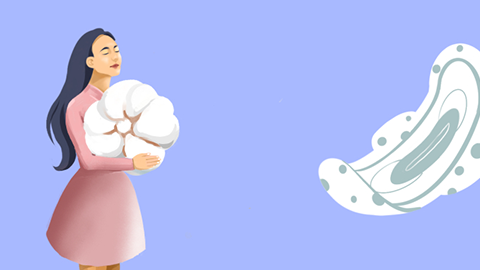What could be the reason for a 16-year-old girl having menstrual bleeding for over ten days with a light flow?
Under normal circumstances, menstrual periods lasting over ten days with light flow in 16-year-old girls may be caused by endocrine disorders during puberty, excessive mental stress, polycystic ovary syndrome (PCOS), endometritis, or uterine developmental insufficiency. If symptoms persist, it is recommended to seek timely medical evaluation at a reputable hospital. Detailed explanations are as follows:

1. Endocrine Disorders During Puberty
At age 16, ovarian function has not fully matured, leading to unstable hormone secretion and irregular shedding of the endometrium, which can result in prolonged menstruation with reduced flow. Maintain regular sleep patterns without staying up late, eat balanced meals to ensure adequate nutrition, avoid excessive dieting, and keep emotional states stable.
2. Excessive Mental Stress
Stress from academic or personal life can affect hypothalamic-pituitary function, disrupting hormonal regulation and causing menstrual irregularities. Reduce stress through physical activity, listening to music, and communicating with family and friends; avoid prolonged states of tension.
3. Polycystic Ovary Syndrome (PCOS)
Elevated androgen levels lead to abnormal ovulation, while the endometrium remains continuously stimulated by estrogen, resulting in prolonged menstrual periods. Under medical guidance, medications such as dydrogesterone tablets, spironolactone tablets, or ethinylestradiol/cyproterone acetate tablets may be prescribed. Weight control and prevention of obesity are also important.
4. Endometritis
Infection of the endometrium by pathogens causes inflammation that impairs endometrial repair, leading to prolonged menstruation with reduced flow. Under medical supervision, antibiotics such as amoxicillin capsules, cefaclor dispersible tablets, or metronidazole tablets may be used. Maintain external genital hygiene and avoid sitting baths.
5. Uterine Developmental Insufficiency
Congenital underdevelopment of the uterus results in a small endometrial surface area and poor regenerative capacity, often causing prolonged, persistent menstrual bleeding. Under medical guidance, medications such as estradiol valerate tablets, progesterone capsules, or conjugated estrogens tablets may be prescribed. In severe cases, surgical uterine reconstruction may be considered.
In daily life, attention should be paid to keeping the body warm during menstruation and avoiding cold, raw, or spicy foods; frequently change sanitary products and maintain dryness of the external genital area; engage in regular exercise to improve physical health; and undergo routine gynecological examinations to monitor reproductive system health.










